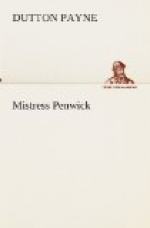“Charles the Second wished merely to be a King who could draw without limit on the treasury for the gratification of his private tastes, who could hire with wealth and honours persons capable of assisting him to kill the time, and who, even when the state was brought by maladministration to the depths of humiliation and to the brink of ruin, could still exclude unwelcome truth from the purlieus of his own seraglio, and refuse to see and hear whatever might disturb his luxurious repose. Later in life, the ill-bred familiarity of the Scottish divines had given him a distaste for Presbyterian discipline, while the heats and animosities between the members of the Established Church and the Nonconformists, with which his reign commenced, made him think indifferently of both. His religion was that of a young prince in his warm blood, whose inquiries were applied more to discover arguments against belief than in its favour.”
“The wits about the Court, who found employment in laughing at Scripture, delighted in turning to ridicule what the preachers said in their sermons before him, and in this way induced him to look upon the clergy as a body of men who had compounded a religion for their own advantage. So strongly did this feeling take root in him that he at length resigned himself to sleep at sermon-time—not even South or Barrow having the art to keep him awake. In one of these half-hours of sleep, when in Chapel, he is known to have missed, doubtless with regret, the gentle reproof of South to Lauderdale during a general somnolency:—’My lord, my lord, you snore so loud you will wake the King.’”




